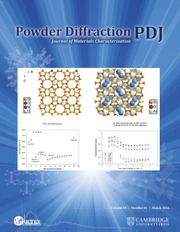No CrossRef data available.
Article contents
Influence of the sample morphology on total reflection X-ray fluorescence analysis
Published online by Cambridge University Press: 29 February 2012
Abstract
Total reflection X-ray fluorescence analysis (TXRF) is a method for qualitative and quantitative analysis of trace elements. In general TXRF is known to allow for linear calibration typically using an internal standard for quantification. For small sample amounts (low ng region) the thin film approximation is valid neglecting absorption effects of the exciting and the detected radiation. However, for higher total amounts of samples deviations from the linear relation between fluorescence intensity and sample amount have been observed. The topic of the presented work is an investigation of the parameters influencing the absorption phenomenon. Samples with different total amounts of arsenic have been prepared to determine the upper limit of sample mass where the linear relation between fluorescence intensity and sample amount is no longer guaranteed. It was found that the relation between fluorescence intensity and sample amount is linear up to ∼100 ng arsenic. A simulation model was developed to calculate the influence of the absorption effects. Even though the results of the simulations are not satisfying yet it could be shown that one of the key parameters for the absorption effect is the density of the investigated element in the dried residues.
Keywords
Information
- Type
- X-Ray Fluorescence
- Information
- Copyright
- Copyright © Cambridge University Press 2009
References
- 9
- Cited by

